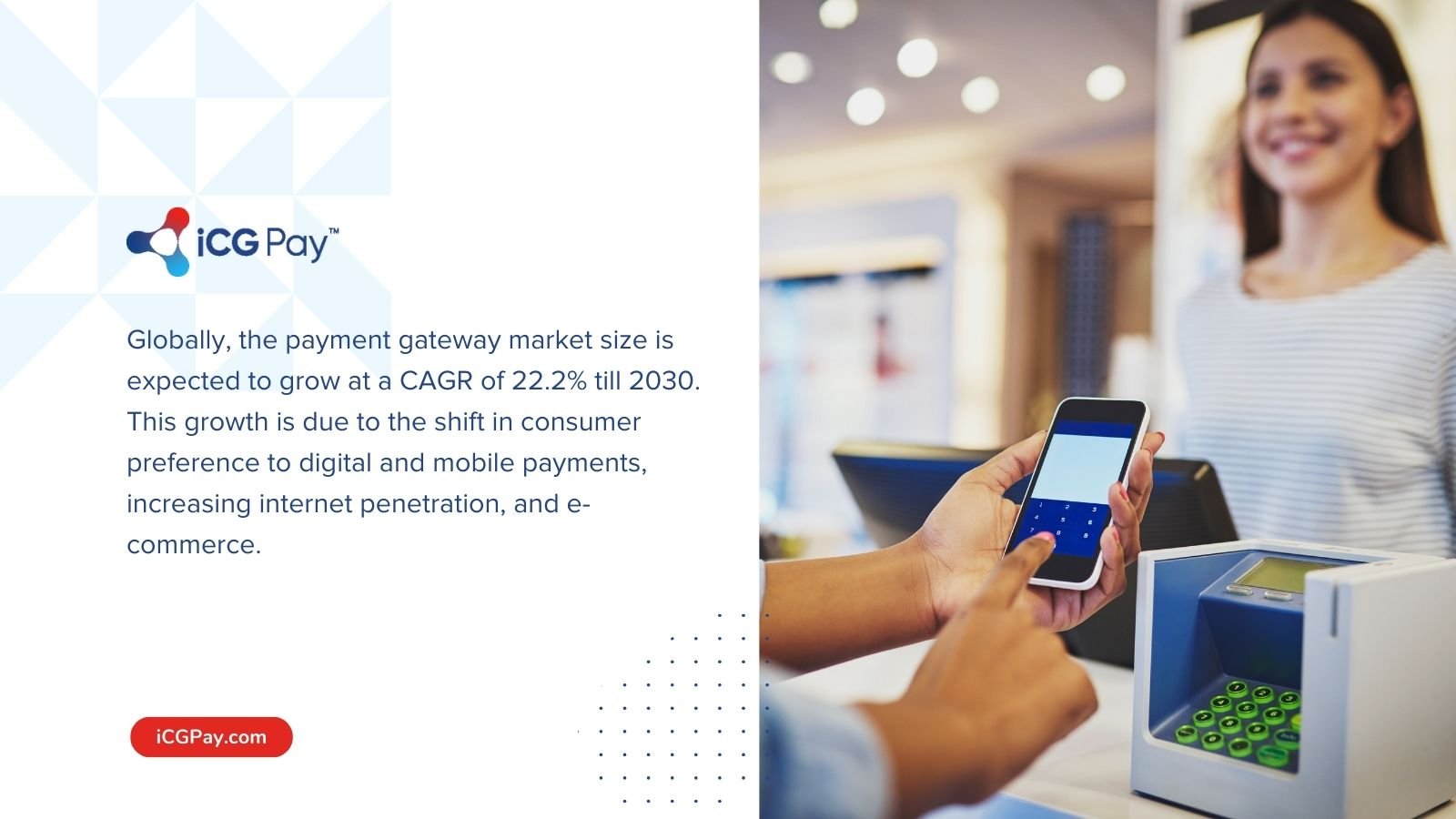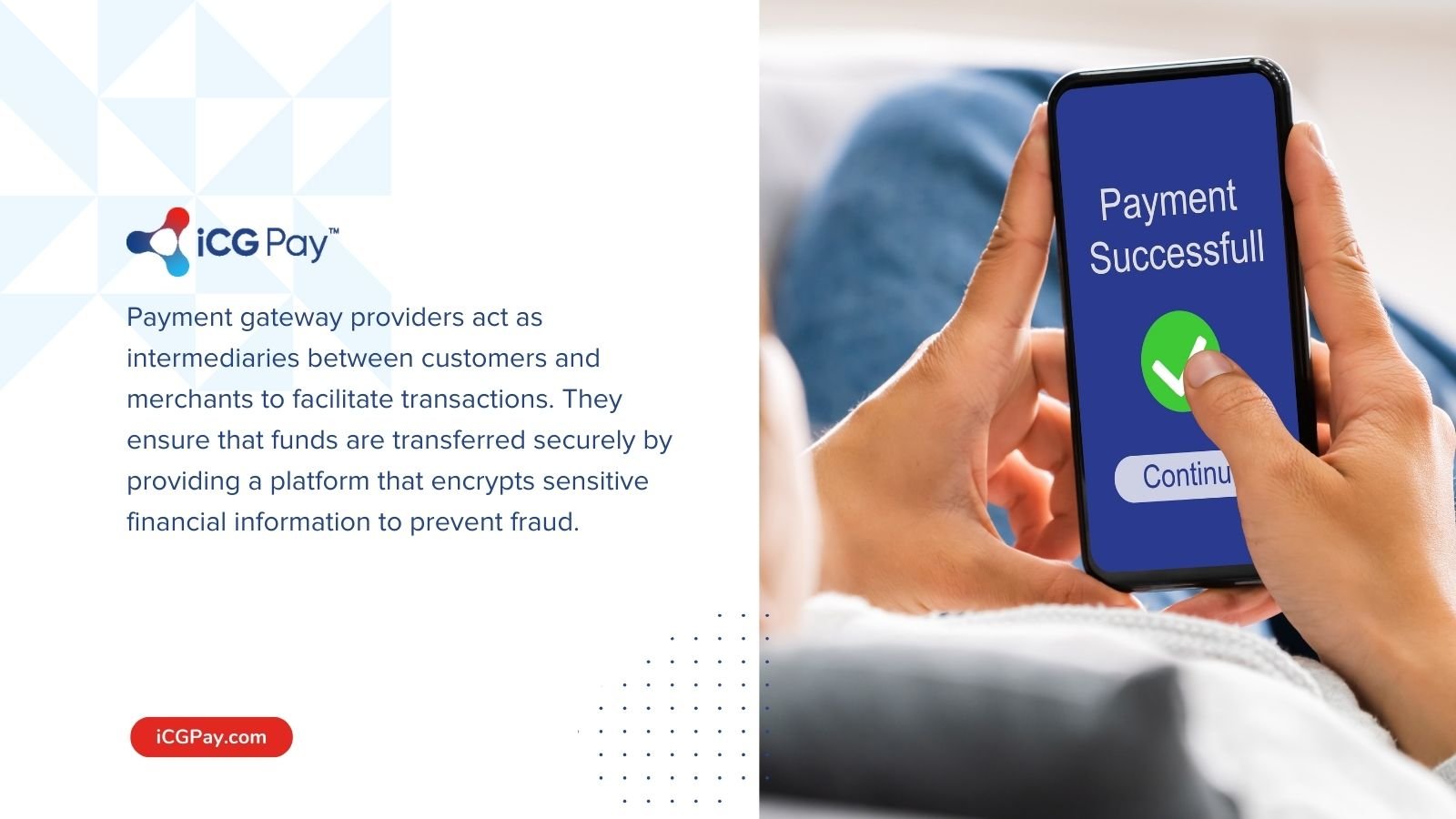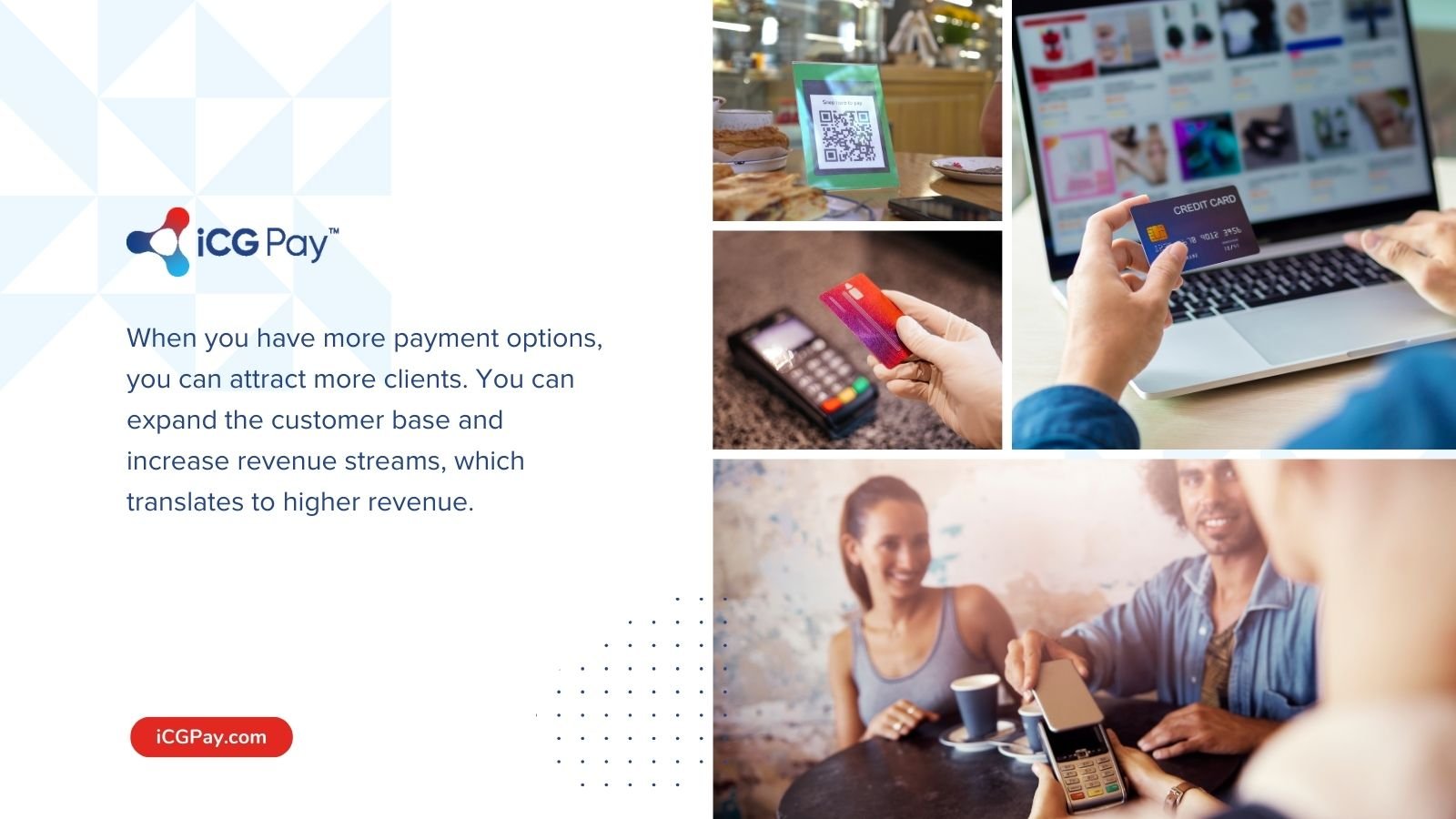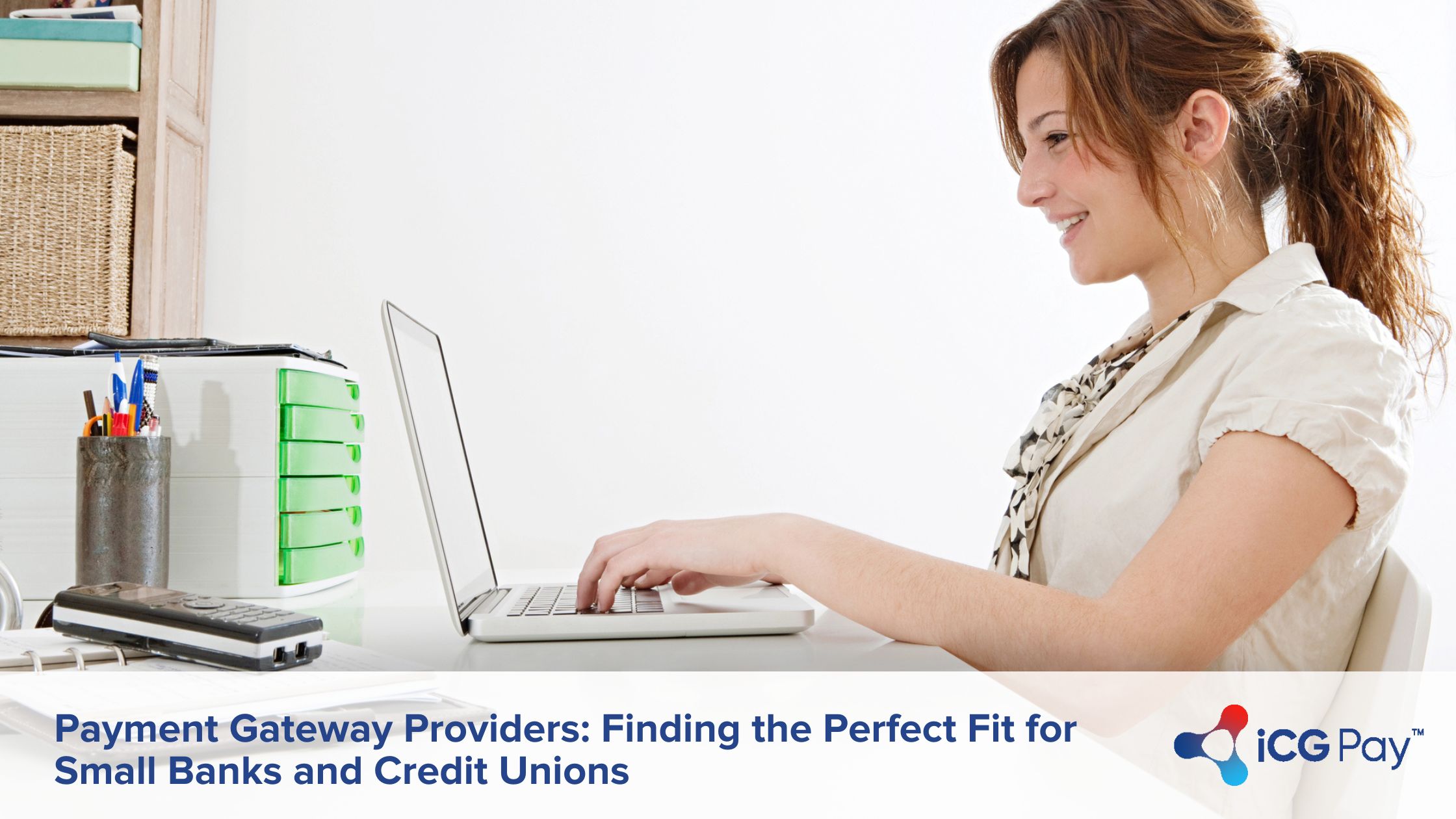Globally, the payment gateway market size is expected to grow at a CAGR of 22.2% till 2030. This growth is due to the shift in consumer preference to digital and mobile payments, increasing internet penetration, and e-commerce. These providers are crucial in meeting the spike in online payment traffic.

Multiple banks worldwide also partner with payment gateway providers to meet their needs and enhance their processing capabilities. However, there are numerous providers to choose from because of the demand for real-time payments. You must select the right partner to achieve your objectives as a financial institution.
Let's examine how banks and credit unions can select the best payment gateway provider. This will improve their payment processing capabilities and make it easier for customers to pay.
Understanding Payment Gateway Providers
Payment gateway providers act as intermediaries between customers and merchants to facilitate transactions. They ensure that funds are transferred securely by providing a platform that encrypts sensitive financial information to prevent fraud. In addition, they are reliable and convenient because they allow banks to accept multiple forms of payments, such as credit cards and ACH payments, using a robust suite of solutions.

As a small bank or credit union, partnering with a reliable payment gateway is essential. Benefits include:
Enhanced Security
Financial institutions often struggle with security and increased fraud. Protect your small bank or credit union by partnering with a reliable provider like us at iCG Pay, formerly known as iCheckGateway.com. We have robust security measures such as encryption and tokenization, reducing the risk of fraud and data breaches.
Streamlined Banking Operations
Thanks to the range of technologies, payment gateway providers can automate tasks such as payment authorization and reconciliation. Automation reduces the number of errors among your staff, increases productivity, and streamlines operations. Additionally, it eliminates the need for manual processes.
Expanded Payment Options
Good payment gateway providers offer multiple payment methods, including credit cards, bank transfers, digital wallets, hosted payment portals, and virtual terminals. Once you integrate these into your bank, you can offer customers more convenience, which boosts client satisfaction.
Increased Revenue
When you have more payment options, you can attract more clients. You can expand the customer base and increase revenue streams, which translates to higher revenue.
Compliance Support
Payment gateway providers usually comply with the latest industry regulations, such as the Payment Card Industry Data Security Standard (PCI DSS). When you partner with a reliable company, your small bank or credit union can adhere to the set security standards and avoid any possible penalties.

Evaluating Your Payment Processing Needs
Small banks and credit unions have unique payment processing needs that differ slightly from those of a large financial institution. Therefore, before selecting a payment gateway provider, examine whether the partnership provides the necessary features and capabilities.
Here are the fundamental needs that your institution requires:
Support for Various Payment Methods
Statistics by NPR show that the U.S. has about 4,000 small banks, more than any other nation globally. Therefore, all these banks have a diverse customer base. Because of this, they need payment processing solutions that can accommodate a wide range of payment options. This flexibility allows the bank to meet the customer needs and enhance the overall experience.
Security
Banking security is a critical need for all financial institutions. You need a partner that provides services like data tokenization and encryption technologies to protect your financial information. Additionally, it would be best to have PCI compliance to secure your information.
Scalability
If you plan to expand your small bank or credit union to other locations, get a payment gateway provider that aligns with this goal. The processing capabilities should accommodate your company when you increase your customer base.
Integration Options
It’s essential to evaluate your integration options. If you have existing banking systems, you also need a provider with capabilities that seamlessly integrate into your bank. This makes adoption easier and boosts your operations.
Factors to Consider When Choosing a Payment Gateway Provider
The market today has many payment gateway providers. However, you must choose the one that perfectly aligns with your goals. So, what should you consider? Here are the key things:
- Ease of Integration: The bank and payment processing company should have complementary capabilities to be leveraged to meet business needs. Look for a provider offering APIs that ease integration into your banking infrastructure.
- Customer Support: If you need a dedicated IT team, ensure your payment gateway provider has responsive customer support channels like live chat, email, or phone support. This ensures you get helpful assistance promptly.
- Transaction Fees: These fees can significantly affect your profitability. Before picking a company, evaluate the transaction fee on each payment method and any additional charges for recurring billing. Compare how this will impact your overall revenue before settling on a final option.
- Payment Security Measures: For your bank to be efficient, you must consider processing speed and security factors. As digital transactions increase, fraud cases are also on the rise. Therefore, choose a partner that is compliant with industry standards. You can check the track record and whether they adhere to regulations set up by Nacha.
- Cost Effectiveness: You might have a limited budget as a small bank or credit union. Therefore, you need to consider the cost-effectiveness of your provider. Check their pricing models and transaction fees to ensure you get value for money.
Finding the Perfect Fit: Researching and Comparing Payment Gateway Providers
As you research the different payment gateway providers, you need to broaden your scope to ensure that you make an informed decision. Here’s a guide on how to start your research:
Identify Your Needs
Before you start the search, clarify your business needs and priorities. Determine the key functionalities and features you need from a payment gateway provider. This can support multiple payment methods or compatibility with your banking systems.
Consider Industry Reputation
As you compare different providers, look for companies with a solid industry reputation. Ensure that you look out for factors like client base, the level of experience, existing partnerships, and any certifications the company might have. A reputable provider will have a positive track record and will likely be certified by industry players.
Use Online Platforms to Get Information
The internet is a good source of information. You can use multiple platforms to find valuable reviews, knowledge, and industry reports on the different payment gateway providers. For instance, you can check reviews on sites like Trustpilot, G2, Capterra, and other industry community forums.
Additionally, seek testimonials from other financial institutions or clients who have worked with the company before. This will help you get the best recommendations for your small bank.
Check Official Websites
You can also get information by checking the official websites of the payment gateway companies. For instance, if you check out iCG Pay, you can find all the details about integration options, available security measures, and the technical resources you need to partner with the company.
Contact the Potential Provider
Alternatively, you can contact the potential providers directly and ask relevant questions to help you understand their suitability to your bank or credit union. Ensure you ask questions about scalability and available capabilities to help determine whether the company is a perfect fit.
Integration and Implementation Process
You can start the integration process once you identify a payment gateway provider. Ensure that you follow the proper implementation process to meet your needs efficiently. Here are the steps to follow:
Step 1: Sign a Contract
Before engaging in any business, you must review and sign the necessary agreements and contracts. These documents outline the terms, conditions, and features of this partnership. Ensure that you have a clear understanding of the expectations.
Step 2: Start the Integration Process
When working with a third-party payment gateway provider, they will provide you with the API credentials to get started. Ensure your system is compatible with the gateway to simplify the implementation process. At this stage, you’ll also implement the appropriate security measures.
Step 3: Conduct Testing
Before going live, you should thoroughly test to help you identify and resolve any bugs or integration issues. This is a crucial step because it minimizes the risk of financial losses in case there’s a problem or breach. Ensure you also train your banking staff on operating the system.
Step 4: Go Live
Once everyone is up to date, deploy the payment gateway to your systems. Coordinate with the provider to ensure that the system is working seamlessly.
Example of a Successful Partnership
In 2021, YES BANK announced that they had partnered with Amazon Pay and Amazon Web Services to provide their customers with an instant real-time payment system. This was through the Unified Payment Interface (UPI) transaction system. Through this integration, customers could make convenient and fast payments.
Additionally, YES BANK could now acquire more merchants through the Amazon Pay platform, which extended the bank’s presence and customer base. The bank could now serve customers better according to the evolving digital landscape, which improved the payment experience and satisfaction levels.
Find the Payment Gateway Provider That Prioritizes Your Success
As small banks and credit unions continue to embrace digital payments, it’s essential to have the proper infrastructure. If you operate these financial institutions, you must find the perfect payment gateway provider to deliver seamless customer payment experiences and enhance payment processing capabilities.
You need to evaluate your needs, research and compare providers, and consider security, integration, and cost-effectiveness factors. Keep in mind that a successful partnership with a reliable payment gateway provider like iCG Pay has long-term benefits in driving business growth and customer satisfaction.
At iCG Pay, we are a Nacha Preferred Partner and an active member of the Payment Innovation Alliance; therefore, we comply with industry regulations to keep your financial information safe.
Looking to get started? Become a partner today!




